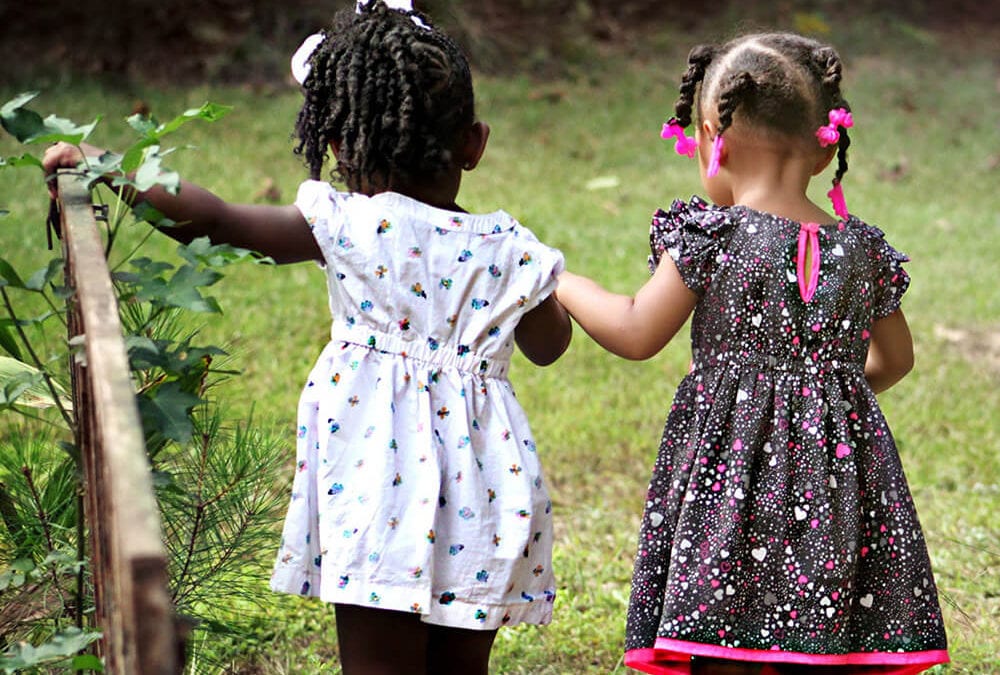 Welcome back to our monthly unschooling blog! If you have any questions you’d like answered in this blog, please email me at james@dfsr.com. I’d love to hear from you and answer any questions you might have (and talk parenting, if you’d like!). Today’s question comes from my very own life. It’s one I was asked recently, but it’s also been a constant theme throughout our parenting journey, so it felt like a good one to address here:
Welcome back to our monthly unschooling blog! If you have any questions you’d like answered in this blog, please email me at james@dfsr.com. I’d love to hear from you and answer any questions you might have (and talk parenting, if you’d like!). Today’s question comes from my very own life. It’s one I was asked recently, but it’s also been a constant theme throughout our parenting journey, so it felt like a good one to address here:
In the absence of school, how DO young people go about making friends?
I’ll begin to answer this question with another question: How do grown-ups go about making friends? How do people who aren’t forced to go to the same building every day make friends?
The answers are myriad, of course, but the important thing is to separate ourselves from the assumption that children are fundamentally different than grown-ups. Yes, they have learned fewer life lessons we have. Yes, they don’t have as much information about where other people are, and they likewise don’t have the ability to get very far on their own. But good news! That’s why they have us! With a little intentional planning from grown-ups, facilitating community among our children isn’t very difficult.
In our little unschooling community here on the Seacoast of New Hampshire, interactions with other young people are commonplace. Many of us bring our kids to the Exeter Farmer’s Market every Thursday, for instance, so that our kids can have the opportunity to engage (or not) with other kids in a non-threatening way. Many of us get together in smaller gatherings – two to five families at a time – and do everything from visiting Water Country in Portsmouth, to having camp fires at our own homes, to playing at local parks. We could almost certainly find other families to hang out with every day if our family wanted to. And this doesn’t even account for other, modern “hang-out” opportunities. For instance, our kids have an ongoing Skype call with a bunch of homeschooled kids where they play Minecraft. We’ve connected with kids in other regions who share the same digital interests as our kids as well.
Simply put, finding people isn’t a problem. But there’s more to helping kids “become socialized” than just finding people. Becoming socialized, to me, is just one component of learning to exist in the world. As unschooling parents, we certainly want to facilitate opportunities for our kids to get to know people outside their families, but I think it’s worthwhile to think critically about exactly how and why we do this.
I firmly believe our society has an “extrovert bias.” That is, extroversion is often painted as a strictly superior way of being than introversion. Young kids who happily talk to people they don’t know are often praised, and kids who turn away or duck behind their parents’ legs are seen as “shy.” Being called “shy” doesn’t usually feel like a neutral observation (like, say, a comment about someone’s hair color), it usually feels like a value judgment. This extrovert bias has helped to create a culture in which parents believe that children need structured settings to develop social skills.
But what if some children are naturally predisposed to forming relationships more slowly? What if they instinctively prefer spending time with a few close friends occasionally, rather than being in large groups of people frequently? What if they feel like the “right amount” of time with friends is once a week, rather than every single day? Aren’t these just personal preferences?
And what about the more extroverted children? In structured environments, children are usually only allowed to talk in specific, small windows of time throughout the day (lunch and recess). Developing relationships outside of these windows (i.e., “talking in class”) gets the most extroverted of our children in trouble. The bubbly, cheerful children in traditional educational environments have to zip their mouths shut against every fiber of their being, where their unschooled counterparts can happily chat the day away to their hearts’ content.
Unschooling allows us to listen to our children’s personal preferences about how much time they spend with others, in the same way it allows us to listen to their desires about what subject matter they explore. It allows them to become comfortable in their own skin and not feel perpetually apologetic about being more or less outgoing than their peers. It allows them to exist in environments where “popularity” isn’t even a thing, where they don’t have to constantly do the math on who has the most friends or who sits alone at the lunch table. It allows them to listen to their inner voices when it comes to how they allocate their time, rather than consume societal messages that having fewer friends makes one a “loser,” or that they should feel lonely if they aren’t constantly surrounded by large groups of people.
Furthermore, there are a number of social interactions that we can almost entirely avoid by allowing our kids to be self-directed in relationship formation. Traditional “bullying” isn’t really a thing when kids can just walk away from the people who mistreat them. Peer pressure is fairly toothless when a child can simply choose new peers if one wants to, or when a child doesn’t define his or her worth by the opinions of others.
In my experience, self-directed environments tend to serve children all across the introvert-extrovert spectrum better than traditional educational environments. Structured environments present unnecessary difficulties for introverted kids by surrounding them with other people constantly. Structured environments stifle extroverted kids by forcing them to focus on lessons or programs at the exclusion of forming more relationships. So who exactly are these environments serving?
If we agree that our fears around socialization are mostly grounded in fears that our children won’t learn to form relationships with others, we can probably agree that children should learn to form relationships in ways that are natural for them rather than forced by us. After all, there will be a day when ALL children wake up with no one to tell them where to go, and whom to hang out with. I’d rather prepare them for that day by giving them practice doing just that, rather than forcing them to do what I think is best.

